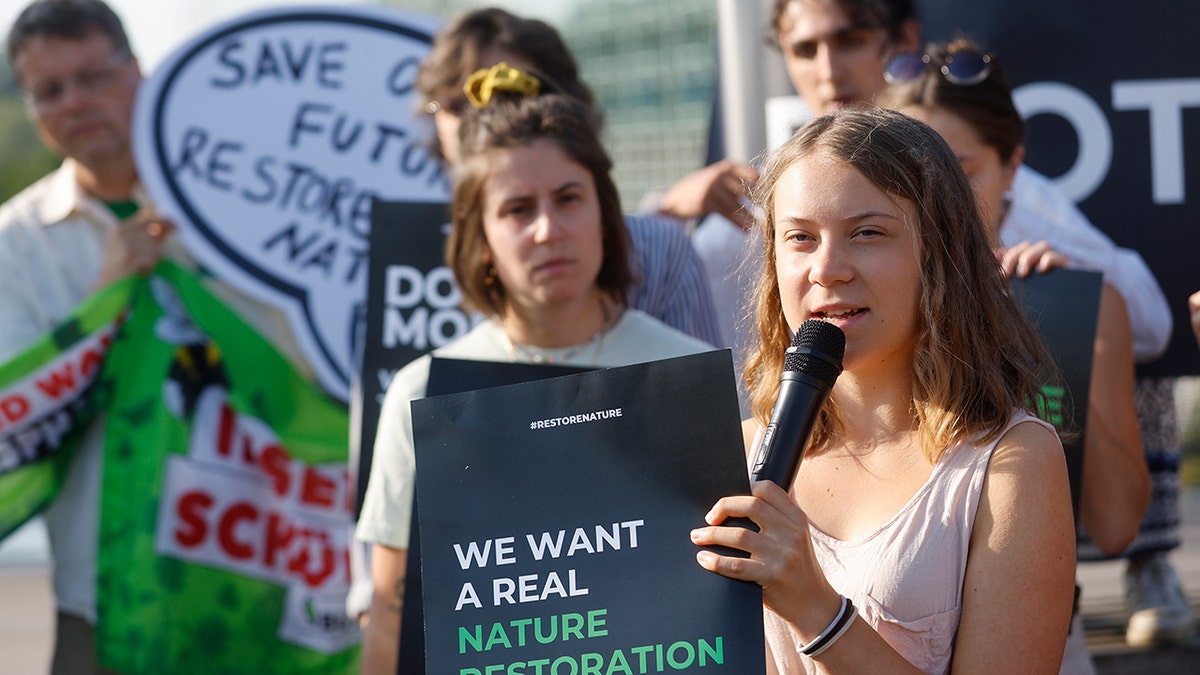Tensions are high as the European Union parliament prepares for a pivotal vote on a landmark nature restoration law. This legislation aims to protect and revitalize the bloc's natural environment, which has suffered from decades of industrial activity. The vote is seen as a critical test of the EU's commitment to its ambitious climate goals.
Outside the parliament building in Strasbourg, France, hundreds of demonstrators, including climate activist Greta Thunberg, rallied in support of the bill. They urged the EU to strengthen its commitment to restoring damaged ecosystems across its 27 member nations. Meanwhile, a counter-protest by farmers highlighted concerns about the potential impact of the legislation on their livelihoods and called for a more gradual approach.
Within the parliament, intense lobbying efforts are underway ahead of Wednesday's vote. Last month, the legislature’s environment committee reached a deadlock on the issue, raising doubts about the bill's future. This legislation forms a cornerstone of the EU's Green Deal, an ambitious initiative that aims to establish the bloc as a global leader in climate action. The proposed law sets binding targets for restoring specific habitats and species, with the goal of covering at least 20% of the EU's land and sea areas by 2030.
The stakes are high, with supporters arguing that the nature restoration law is essential for the success of the entire Green Deal. Failure to pass the legislation could signal a weakening of the EU's commitment to climate action and undermine its international credibility. Initially, the bill enjoyed broad support from member states and the EU's executive commission, led by President Ursula von der Leyen.

However, von der Leyen's own political group, the Christian Democrat European People's Party (EPP), has unexpectedly turned against the bill. The EPP argues that the legislation threatens food security, harms farmers' incomes, and ignores the economic concerns of European citizens. They advocate for a more cautious approach to climate legislation, prioritizing economic stability and competitiveness.
The EPP's opposition, given its significant influence as the largest group in the parliament, has transformed the issue into a highly contentious political debate. The outcome of Wednesday's vote remains uncertain. If the parliament approves the plan, negotiations with member states will follow to finalize the legislation. The EU commission has expressed willingness to revise certain provisions and address concerns to ensure the proposal is practical and reflects current circumstances.
However, if the parliament rejects the plan, it will likely be shelved until after the next EU parliament elections in June 2024. This would significantly damage the EU's credibility on climate issues, given the importance it has placed on the Green Deal. The Green Deal encompasses a wide range of measures, including reducing energy consumption, cutting transportation emissions, and reforming the EU’s greenhouse gas emissions trading system.
The nature restoration law has garnered support not only from environmental activists but also from numerous international scientists and major corporations. They recognize the crucial role of this legislation in safeguarding biodiversity and achieving the EU's climate objectives.








